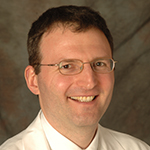Genomics and Health Disparities Lecture Series
Event Details
The Genomics and Health Disparities Lecture Series was formed to enhance opportunities for dialogue about how innovations in genomics research and technology can impact health disparities. Topics will range from basic science to translational research.
The lecture series is co-sponsored by institutes at the National Institutes of Health (National Human Genome Research Institute, National Heart, Lung and Blood Institute, National Institute of Diabetes and Digestive and Kidney Diseases and the National Institute on Minority Health and Health Disparities) and the Office of Minority Health at the Food and Drug Administration.
Virtual: Zoom Webinar (Requires Registration)
In-Person: NIH Building 31C, 6th Floor Conference Room A
Upcoming Lectures
TBD
Past Lectures
Genetic ancestry, population structure, and health outcomes in the All of Us Research Program cohort
November 14, 2024, 3:00 - 4:00 PM ET
NIH Building 31C, 6th Floor Conference Room A
I. King Jordan, Ph.D.
Professor, School of Biological Sciences
Director, Bioinformatics Graduate Program
Georgia Institute of Technology
 I. King Jordan, Ph.D. is Professor in the School of Biological Sciences and Director of the Bioinformatics Graduate Program at the Georgia Institute of Technology. Members of Dr. Jordan's laboratory at Georgia Tech conduct bioinformatics research with an emphasis on human population genomics and genetic ancestry inference in support of health equity. His group also develops software for large-scale genome sequence and functional genomic analyses. In addition to his research and development efforts, Dr. Jordan is actively engaged in bioinformatics and genomics capacity building, with a focus on global health in Africa and Latin America. He was named a Fulbright Scholar to Colombia and cofounded the PanAmerican Bioinformatics Network.
I. King Jordan, Ph.D. is Professor in the School of Biological Sciences and Director of the Bioinformatics Graduate Program at the Georgia Institute of Technology. Members of Dr. Jordan's laboratory at Georgia Tech conduct bioinformatics research with an emphasis on human population genomics and genetic ancestry inference in support of health equity. His group also develops software for large-scale genome sequence and functional genomic analyses. In addition to his research and development efforts, Dr. Jordan is actively engaged in bioinformatics and genomics capacity building, with a focus on global health in Africa and Latin America. He was named a Fulbright Scholar to Colombia and cofounded the PanAmerican Bioinformatics Network.
Mesoamerican Nephropathy: Genes and Environment in a Kidney Disease Hotspot
June 26, 2024, 2:00 - 3:00 PM ET
Building 50, First Floor Conference Room
David Friedman, M.D.
Associate Professor of Medicine
Harvard Medical School
 David Friedman, M.D., serves as a distinguished nephrologist and accomplished translational scientist at Beth Israel Deaconess Medical Center, holding the position of Associate Professor of Medicine at Harvard Medical School. His research endeavors span the intricate realm of chronic kidney disease (CKD), where he investigates its genetic underpinnings using an innovative approach that merges population genetics with functional analyses.
David Friedman, M.D., serves as a distinguished nephrologist and accomplished translational scientist at Beth Israel Deaconess Medical Center, holding the position of Associate Professor of Medicine at Harvard Medical School. His research endeavors span the intricate realm of chronic kidney disease (CKD), where he investigates its genetic underpinnings using an innovative approach that merges population genetics with functional analyses.
Dr. Friedman garnered recognition as a leading figure in nephrology with his pivotal involvement in a landmark 2010 publication elucidating the impact of APOL1 gene variants on kidney failure, among individuals of African ancestry. Since then, his work has propelled our understanding of the molecular mechanisms behind APOL1-related kidney disease through the integration of human genetic data, molecular biology techniques, and animal models.
Dr. Friedman also directs his efforts toward addressing Mesoamerican Nephropathy, a pervasive kidney ailment associated with significant morbidity and mortality, initially identified among agricultural laborers in Central America. This epidemic, now recognized as chronic kidney disease of unknown etiology (CKDu), has emerged in various global regions, including India.
By focusing on disadvantaged communities and using multidisciplinary approaches to examine the intersection of genetic backgrounds with environmental influences, Dr. Friedman's research holds immense potential in fostering advancements toward equitable health outcomes for all.
Global Diversity, Local Context: The Role of Ancestry, Genetics, and Environment on Human Health
January 11, 2024, 3:00 - 4:00 p.m. ET
Building 10, Lipsett Amphitheater

Genevieve Wojcik, Ph.D., MHS
Genetic Epidemiologist and Assistant Professor of Epidemiology
Johns Hopkins Bloomberg School of Public Health
Dr. Genevieve Wojcik is a genetic epidemiologist and Assistant Professor of Epidemiology at the Johns Hopkins Bloomberg School of Public Health. Her research focuses on understanding the role of ancestry in genetic risk and developing solutions to address health inequities for diverse and admixed populations, as well as genetic susceptibility to infectious disease. Her most recent work explores the interaction of genetic ancestry and environment in admixed populations and downstream consequences for genetic risk prediction. Dr. Wojcik is a member of multiple NIH consortia, including the Population Architecture using Genomics and Epidemiology (PAGE) Study, the Clinical Genome Resource (ClinGen), and the Polygenic Risk Methods in Diverse Populations (PRIMED) Consortium.
Video
Leveraging Genomics to Address Health Disparities in Rare Diseases and Cancer Screenings
February 16, 2023, 3:30 - 4:30 p.m. ET

C. Jimmy Lin, M.D., Ph.D., MHS
Founder & Chief Executive Officer
Rare Genomics Institute
C. Jimmy Lin, M.D., Ph.D., MHS is the Founder and Chief Executive Officer of Rare Genomics (RG) Institute, an international non-profit founded in 2011 to enable any community to leverage cutting-edge biotechnology to advance understanding of rare diseases. Dr. Lin is also the Chief Scientific Officer at Freenome, working on early diagnostic of cancers. Prior to Freenome, he was the Chief Scientific Officer, Oncology at Natera where he led the development of new diagnostic technologies for cancer.
Before his career in private industry, Dr. Lin led the ClinOmics program at the National Cancer Institute (NIH/NCI) and was a research instructor at Washington University in St. Louis. Dr. Lin earned his MD and PhD from Johns Hopkins School of Medicine and a Master of Health Science from the Johns Hopkins Bloomberg School of Public Health, creating genome-wide maps of breast, colorectal, pancreatic, glioblastoma, medulloblastoma, and melanoma cancers, as well as mapping the genome of an anaerobic bacteria that is used as anti-tumor therapy. He is a 2016 Senior TED Fellow and a 2016 WIRED Innovation Fellow and has been featured in several media outlets, including Forbes, Bloomberg, Wall Street Journal, New York Times, Washington Post, BBC, and TIME Magazine.
Video
Working Towards Equity in Genomic Medicine: A Clinician-Investigator's Perspective
November 7, 2022, 3:00 - 4:00 p.m. ET

Iftikhar J. Kullo, M.D.
Professor of Medicine
Department of Cardiovascular Medicine
Mayo Clinic College of Medicine and Science
Iftikhar J. Kullo, M.D. is a clinician investigator in the Department of Cardiovascular Medicine at the Mayo Clinic in Rochester, Minnesota. His research is focused on the genetic basis of atherosclerosis and lipid disorders, as well as the implementation of genomic medicine. Dr. Kullo heads the Atherosclerosis and Lipid Genomics Laboratory, chairs the Cardiovascular Genomics Task Force, and directs the Early Atherosclerosis and Familial Hypercholesterolemia Clinics at the Mayo Clinic. He has been funded by the NIH since 2003 and is currently a principal investigator on two National Human Genome Research Institute programs: the Electronic Medical Records and Genomics (eMERGE) Network and the Polygenic RIsk MEthods in Diverse populations (PRIMED) Consortium. Dr. Kullo also serves on the U.S. National Advisory Council on Human Genome Research.
Medical genomics in underrepresented populations from Latin America to the Pacific
October 6, 2022, 2:00 - 3:00 p.m. ET

K. Sean Kimbro, Ph.D.
Professor, Department of Biomedical and Biological Sciences
Director, Integrated Bioscience Ph.D. Program
JLC Biomedical Biotechnology Research Institute
North Carolina Central University
* Co-hosted by the NHGRI Division of Intramural Research Seminar Series
Medical genomics in underrepresented populations from Latin America to the Pacific
June 13, 2022, 3:00 - 4:00 p.m. ET
Andrés Moreno Estrada, M.D., Ph.D.
Principal Investigator, Human Evolutionary Genomics Lab
National Laboratory of Genomics for Biodiversity (LANGEBIO), Mexico
Andrés Moreno-Estrada is a Mexican population geneticist interested in human genetic diversity and its implications in population history and medical genomics. He is a medical doctor by training (University of Guadalajara, 2002) and pursued a Ph.D. in Evolutionary Genetics in Barcelona (Pompeu Fabra University, 2009), where he was trained in human population genetics working on the analysis of genetic variation in candidate genes under positive selection on the human lineage. Dr. Moreno was a postdoctoral fellow from 2009 to 2012 in Dr. Carlos Bustamante’s group at Cornell University and Stanford University School of Medicine. He later became Research Associate of the Genetics Department at Stanford University until 2014. For his work in Latin America, he was awarded the George Rosenkranz Prize for Health Care Research in Developing Countries in 2012. His work integrates genomics, evolution and precision medicine in projects involving large collections of understudied populations, in particular from the Americas and the Pacific. He authored the most detailed work so far of the genetic structure of the Mexican population, including the first genomic characterization of 20 diverse indigenous groups throughout Mexico (Science 2014), as well as fine-scale genomic studies in the Caribbean region (PLOS Genetics 2013), South America (PLOS Genetics 2015) and Polynesia (Nature 2020, Nature 2021). Since 2015, Dr. Moreno is the principal investigator of the Human Evolutionary Genomics Lab at the National Laboratory of Genomics for Biodiversity (LANGEBIO) in Mexico. He is the co-founder of the Latin American Alliance for Genomic Diversity and member of the Executive Committee of the International Common Disease Alliance (ICDA).
VideoHealth disparities and the genetic underpinnings of obesity
March 10, 2022, 4:00 - 5:00 p.m. ET
Kari E. North, Ph.D.
Director, Cardiovascular Disease Genetic Epidemiology Computational Laboratory
The Gillings School of Global Public Health
University of North Carolina at Chapel Hill
Professor Kari North is a genetic epidemiologist and Director of the CVD Genetic Epidemiology Computational Laboratory in the Gillings School of Global Public Health, University of North Carolina. Dr. North is a recognized leader in research in obesity and health disparities in underrepresented populations, including those of American Indian, Hispanic and African American ancestry. She has more than 450 research publications and has been continually funded by the National Institutes of Health since 2003. In 2018, Dr. North received the Shiriki Kumanyika Diversity and Disparities Leadership Award from the Obesity Society for her significant impact in the area of obesity-related disparities research and her leadership in mentoring of new investigators. Dr. North’s research team focuses on identifying the genetic underpinnings of a wide range of disease outcomes including cardiovascular, obesity and diabetes traits with a goal to better understand causes of common chronic diseases and to enable disease prevention.
VideoFrom Peril to Promise: Equity and Integrity in Science and Technology
December 16, 2021, 3:00 – 4:00 p.m. ET
Alondra Nelson, Ph.D.
Harold F. Linder Chair and Professor, Institute for Advanced Study
Deputy Director for Science and Society, White House Office of Science and Technology Policy
Dr. Alondra Nelson currently serves at the inaugural Deputy Director for Science and Society in the White House Office of Science and Technology Policy. In this role, she brings social science expertise, including attention to issues of social inequality, explicitly into the work of federal science and technology strategy and policy.
Dr. Nelson is also Harold F. Linder Chair and Professor at the Institute for Advanced Study, an independent research center in Princeton, New Jersey. She was president of the Social Science Research Council, an international research nonprofit from 2017-2021. She was previously professor of sociology at Columbia University, where she also served as the inaugural Dean of Social Science. Dr. Nelson began her academic career on the faculty of Yale University and there was recognized with the Poorvu Prize for interdisciplinary teaching excellence.
Dr. Nelson’s major research contributions are situated at the intersection of political and social citizenship and emerging scientific, medical and technological phenomena. Her work explores science, medicine and technology as sites of both risk and empowerment, especially for underserved and vulnerable communities. Dr. Nelson connects these dimensions in a range of widely acclaimed and award-winning publications, including Technicolor: Race, Technology, and Everyday Life (with Thuy Linh N. Tu); Genetics and the Unsettled Past (with Keith Wailoo and Catherine Lee); Body and Soul: The Black Panther Party and the Fight Against Medical Discrimination; and The Social Life of DNA.
Dr. Nelson is a member of the American Academy of Arts and Sciences, the American Academy of Political and Social Science, the American Philosophical Society and the National Academy of Medicine.
VideoWhy Include People in Research if they Lack Access to Decent HealthCare?
March 26, 2021, 3:00 – 4:00 p.m. ET
Pilar N. Ossorio, Ph.D., J.D.
Professor of Law and Bioethics,
University of Wisconsin-Madison (UW)
Program Lead, Ethics Program
Morgridge Institute for Research
Dr. Ossorio is Professor of Law and Bioethics where she is on the faculties of the Law School and the Department of Medical History and Bioethics at the Medical School. In 2011 she became the inaugural Ethics Scholar-in-Residence at the Morgridge Institute for Research, the private, nonprofit research institute that is part of the Wisconsin Institutes of Discovery. She also serves as the co-director of UW's Law and Neuroscience Program, as a faculty member in the UW Masters in Biotechnology Studies program, and as Program Faculty in the Graduate Program in Population Health. Prior to taking her position at UW, she was Director of the Genetics Section of the Institute for Ethics at the American Medical Association, and taught as adjunct faculty at the University of Chicago Law School.
VideoPopulation Genetics in an Era of Genomic Health
December 10, 2020, 3:00 – 4:00 p.m. ET
Eimear Kenny, Ph.D.
Associate Professor, General Internal Medicine
Genetics and Genomic Sciences & Director, Institute for Genomic Health
Ichan School of Medicine at Mount Sinai
Dr. Kenny is a statistical and population geneticist whose research is focused on accelerating the integration of genomics into clinical care, especially in diverse and underserved populations. She leads a multidisciplinary team of geneticists, computer scientists, clinicians, and other medical professionals, working on problems at the interface of artificial intelligence, very large-scale genomics, and medicine. Dr. Kenny is the Founding Director of the Institute for Genomic Health and an Associate Professor of Medicine and Genetics at the Ichan School of Medicine at Mount Sinai. She is Principal Investigator of six large international programs focused on genomic research, medicine, and health, and is a scientific advisor to many genomic and genomic medicine initiatives in government, non-profit, and industry arenas.
VideoSubtype-specific Breast Cancer Risk in Highly Indigenous Latin American Women
June 25, 2020, 3:00 - 4:00 p.m. ET
Laura Fejerman, Ph.D.
Assistant Professor
Department of Medicine
University of California, San Francisco
Understanding Health Disparities in Kidney Disease through Genetic Studies
December 5, 2019, 2:00 – 3:00 p.m. ET
Ali Gharavi, M.D.
Chief, Division of Nephrology,
Columbia University Irvine Medical Center
Director, Center for Precision Medicine and Genomics
Columbia University
Dr. Gharavi’s research is focused on the molecular genetics of kidney diseases, and his work has led to the discovery of genes and loci for glomerulonephritis, hypertension, polycystic liver disease and congenital defects of the kidney and urinary tract. These leading works have led to multiple NEJM publications, as well as in numerous other top journals. His recent research has demonstrated the utility of sequencing in the diagnosis and management of patients with nephropathy. His ultimate goal is to bring personalized genomic nephrology from the laboratory into patient care, recognizing the disproportionate effect that these diseases have on minority communities.
The lecture is part of the Genomics and Health Disparities Lecture Series, a collaborative effort focused on exploring the role of genomics in achieving health equity. It is co-sponsored by the National Heart, Lung, and Blood Institute; the National Human Genome Research Institute; the National Institute of Diabetes and Digestive and Kidney Diseases; the National Institute on Minority Health and Health Disparities; and the Office of Minority Health and Health Equity at the Food and Drug Administration.
VideoCan Equity in Genomic Medicine Become a Quality Goal?
July 16, 2019, 3:00 - 4:00 p.m. ET
Katrina Armstrong, M.D.
Chair and Physician-in-Chief
Department of Medicine
Massachusetts General Hospital
Katrina A. Armstrong, M.D., is the Jackson Professor of Clinical Medicine at Harvard Medical School, Chair of the Department of Medicine and Physician-in-Chief of Massachusetts General Hospital. She is an internationally recognized investigator in medical decision making, quality of care, and cancer prevention and outcomes, an award winning teacher, and a practicing primary care physician. She has served on multiple advisory panels for academic and federal organizations and has been elected to the American Society of Clinical Investigation and the Institute of Medicine. Prior to coming to Mass General, she was the Chief of the Division of General Internal Medicine, Associate Director of the Abramson Cancer Center and Co-Director of the Robert Wood Johnson Clinical Scholars Program at the University of Pennsylvania.
VideoFrom Genomics to Multi-Omics: African American Precision Medicine
March 26, 2019, 12:00 - 1:00 p.m. ET
Minoli Perera, Pharm.D., Ph.D.
Associate Professor, Department of Pharmacology
Northwestern University
Minoli Perera, Pharm.D, Ph.D., is an associate professor within the Department of Pharmacology and Center for Pharmacogenomics at the Feinberg School of Medicine at Northwestern University with expertise in pharmacokinetics, clinical pharmacology and human genetics. Dr. Perera's laboratory focuses on pharmacogenomics (using a patient's genome to predict drug response) in minority populations. Working in this translation research space requires both clinical expertise as well as the use of high-throughput basic science approaches. Her goal is to bring the benefits of precision medicine to all US populations.
VideoMaking Precision Medicine Socially Precise
September 18, 2018, 3:00 - 4:00 p.m. ET
Esteban González Burchard, M.D., M.P.H.
Distinguished Professor in Pharmaceutical Sciences
Professor, Bioengineering & Therapeutic Sciences and Medicine
University of California, San Francisco
Esteban González Burchard, M.D., M.P.H. is a physician-scientist at the University of California, San Francisco (UCSF). Dr. Burchard has formal training and expertise in internal medicine, pulmonary and critical care medicine, epidemiology, molecular genetics, genetic and clinical research. He is the Director of the UCSF Asthma Collaboratory, a large inter disciplinary research program focusing on minority children and gene-environment interactions for asthma. Dr. Burchard initiated and now directs the largest study of asthma in minority children in the U.S. where he leads a collaborative team of investigators and we are taking a comprehensive approach to studying asthma and related traits in minority children by focusing on the interactions between genetic, social and environmental risk factors. His team was the first to leverage genetic ancestry to identify novel genetic and environmental risk factors for lung disease and poor drug response.
Dr. Burchard is also the Principal Investigator of the Asthma Translational Genomics Collaborative (ATGC), the largest whole genome sequencing study of asthma in the world. His research has been seminal in elucidating the pathogenesis of asthma and asthma related traits in minority populations. He has a record of successful, productive, and collaborative research in areas of high relevance for studies of asthma in minority children.
In 2015, Dr. Burchard served as a member of Precision Medicine Initiative Working Group of the Advisory Committee to the (NIH) Director, building the foundation for the All of Us research program. In August of 2018, he received the Lifetime Achievement award from the National Medical Foundation, the nation's largest and oldest Black Medical Association, and he was inducted into San Francisco State University's Alumni Hall of Fame.
VideoMaking Precision Medicine Socially Precise
September 18, 2018, 3:00 - 4:00 p.m. ET
Esteban González Burchard, M.D., M.P.H.
Distinguished Professor in Pharmaceutical Sciences
Professor, Bioengineering & Therapeutic Sciences and Medicine
University of California, San Francisco
Esteban González Burchard, M.D., M.P.H. is a physician-scientist at the University of California, San Francisco (UCSF). Dr. Burchard has formal training and expertise in internal medicine, pulmonary and critical care medicine, epidemiology, molecular genetics, genetic and clinical research. He is the Director of the UCSF Asthma Collaboratory, a large inter disciplinary research program focusing on minority children and gene-environment interactions for asthma. Dr. Burchard initiated and now directs the largest study of asthma in minority children in the U.S. where he leads a collaborative team of investigators and we are taking a comprehensive approach to studying asthma and related traits in minority children by focusing on the interactions between genetic, social and environmental risk factors. His team was the first to leverage genetic ancestry to identify novel genetic and environmental risk factors for lung disease and poor drug response.
Dr. Burchard is also the Principal Investigator of the Asthma Translational Genomics Collaborative (ATGC), the largest whole genome sequencing study of asthma in the world. His research has been seminal in elucidating the pathogenesis of asthma and asthma related traits in minority populations. He has a record of successful, productive, and collaborative research in areas of high relevance for studies of asthma in minority children.
In 2015, Dr. Burchard served as a member of Precision Medicine Initiative Working Group of the Advisory Committee to the (NIH) Director, building the foundation for the All of Us research program. In August of 2018, he received the Lifetime Achievement award from the National Medical Foundation, the nation's largest and oldest Black Medical Association, and he was inducted into San Francisco State University's Alumni Hall of Fame.
VideoTowards Understanding the Role of Population Diversity in Cancer Genome Science
August 30, 2018, 3:00 - 4:00 p.m. ET
John D. Carpten, Ph.D.
Professor and Chair, Department of Translational Genomics
Director, Institute of Translational Genomics
Keck School of Medicine, University of Southern California
John Carpten, Ph.D. is Professor and Chair for the Department of Translational Genomics. His training and professional experiences include postdoctoral training at the National Human Genome Research Institute/NIH, and serving as Deputy Director of Research at the Translational Genomics Research Institute (TGen). Dr. Carpten possesses unique training in multiple disciplines including germline genetics for disease risk and predisposition, somatic cancer genomics, health disparities research, cell biology, functional genomics, and precision medicine. The primary focus of his research centers around the development and application of cutting edge genomic technologies and bioinformatics analysis in search of germ-line and somatic alterations that are associated with cancer risk and tumor characteristics, respectively.
Dr. Carpten's cancer research program spans many tumor types including prostate cancer, breast cancer, colon cancer, brain cancer, and multiple myeloma, in addition to several forms of pediatric cancer. He has a particular interest in the study of cancer's that disproportionately affect unrepresented populations. He has been involved the development and application of high throughput genomic methods and technologies throughout his career, including clinically relevant approaches in support of Precision Medicine. It is his hope that this work will one day lead to improvements in knowledge based therapeutics toward improvements in outcomes for cancer patients.
NIH VideocastLeveraging genomics to illuminate race/ethnicity differences in type 2 diabetes
February 22, 2018, 3:00 - 4:00 p.m ET
Jose C. Flores, M.D., Ph.D.
Investigator, Center for Genomic Medicine
Chief, Diabetes Unit, Massachusetts General Hospital
Associate Professor, Harvard Medical School
Institute Member, Broad Institute
Jose C. Florez, M.D., Ph.D. is the Chief of the Diabetes Unit at the Massachusetts General Hospital, an Associate Professor at Harvard Medical School, and an Institute Member at the Broad Institute.
He and his group have contributed to the performance and analysis of high-throughput genomic studies in type 2 diabetes and related traits and complications, in international consortia such as MAGIC, GENIE, DIAGRAM, T2D-GENES, AMP-T2D and SIGMA. He leads the genetic research efforts of the Diabetes Prevention Program, and is the Principal Investigator of the Study to Understand the Genetics of the Acute Response to Metformin and Glipizide in Humans (SUGAR-MGH).
In addition to his research and teaching duties, he is clinically active in the MGH Diabetes Center, the Endocrine inpatient consult service, and the Down Syndrome Program. He is the Editor-in-Chief of Current Diabetes Reports, an MGH Research Scholar and the recipient of the 2010 Presidential Early Career Award for Scientists and Engineers, the highest honor bestowed by the United States government on science and engineering professionals in the early stages of their independent research careers.
VideoVariation in Blood Pressure Across Populations - Chasing the Phantom of Race
November 7, 2017, 3:00 - 4:00 p.m ET
Richard Cooper, M.D.
Professor and Chair, Public Health Sciences
Stritch School of Medicine
Loyola University Chicago
Richard Cooper, M.D. is an outspoken advocate of the need to incorporate a broad social understanding of race into the interpretation of genetic research on ethnic differences. A major research focus of his has been a description of the evolution of cardiovascular disease across the course of the African diaspora. This work has demonstrated the determining role of changing environmental conditions on the evolution of cardiovascular risk status among populations of African descent. An additional dimension to this work has been the use of the tools of genetic epidemiology to explore the pathogenesis of hypertension and obesity.
Dr. Cooper received a MERIT award from the NIH in 1998 and has served on numerous advisory and review panels. He is a consultant to the World Health Organization (WHO) and the Centers for Disease Control and Prevention (CDC) on issues related to control of cardiovascular disease in developing countries and is course director for an annual training program in sub-Saharan Africa. In the last several years he has written widely on the topic of genetics and race and has been a frequent speaker at professional meetings. He was a member of the National Advisory Council of the National Human Genome Research Institute (NIH) from 2008-2011.
Video SlidesRisk, Race & Resilience: Three Dimensions of Health Disparities
September 19, 2017, 3:00 - 4:00 p.m ET
Herman Taylor, Jr., M.D., M.P.H., F.A.C.C., F.A.H.A.
Director, Cardiovascular Research Institute
Professor of Medicine
Morehouse School of Medicine
Herman Taylor, Jr., M.D., M.P.H. is a nationally-recognized cardiologist leader with broad experience and success in key areas including invasive practice/research. Over the last decade he has focused predominantly on preventive cardiology and leadership of the landmark Jackson Heart Study (JHS) and ancillary observational research projects. Dr. Taylor was appointed in 1999 as the Principal Investigator and Director of the Jackson Heart Study, the largest epidemiological study of African Americans and cardiovascular disease of its kind ever undertaken. Since assuming that role he has held three simultaneous positions with the institutions funded by the NIH to administer the Study: Professor of Medicine and an attending cardiologist (and the inaugural holder of the Aaron Shirley Endowed Chair for the Study of Health Disparities) at University of Mississippi Medical Center; Visiting Professor of Biology in the Division of Natural Sciences at Tougaloo College; and, Clinical Professor of Epidemiology and Preventive Medicine at Jackson State University.
Video SlidesGenomics: Will it help us address health disparities?
June 8, 2017, 3:00 - 4:00 p.m ET
Mark Cullen, M.D.
Director, Stanford Center for Population Health Sciences
Professor of Medicine
Stanford School of Medicine
Prior to his recruitment to Stanford as chief of the division of general medical disciplines in May, 2009, Dr. Cullen was a professor of medicine and public health and director of the Occupational and Environmental Medicine Program (OEM) at Yale University School of Medicine. He received his BA from Harvard College in 1971 and his MD from Yale University School of Medicine in 1976. Dr. Cullen completed his residency in internal medicine at Yale and trained in clinical epidemiology before joining the faculty there as an assistant professor in 1980. Early in his career Dr. Cullen focused on introducing concepts of clinical epidemiology into occupational and environmental medicine as a counterpart to the prevailing approaches of population epidemiology and animal toxicology. Early research interests included the biologic effects of lead, beryllium, solvents and asbestos. As an outgrowth of his asbestos work, he was a Co-PI on the CARET trial which examined the impacts of vitamin A and beta carotene on the incidence of lung cancer in a high risk population. In the mid-90's he initiated a large collaborative project on occupational asthma, integrating mechanistic, clinical and epidemiologic components.
Video SlidesEvolution and Adaptation in Africa: Implications for Health and Disease
November 15, 2016, 3:00 - 4:00 p.m ET
Sarah Tishkoff, Ph.D.
David and Lyn Silfen University Professor
Departments of Genetics and Biology
Perelman School of Medicine
School of Arts and Sciences
University of Pennsylvania
Sarah Tishkoff is the David and Lyn Silfen University Professor in Genetics and Biology at the University of Pennsylvania, holding appointments in the School of Medicine and the School of Arts and Sciences. Dr. Tishkoff studies genomic and phenotypic variation in ethnically diverse Africans. Her research combines field work, laboratory research, and computational methods to examine African population history and how genetic variation can affect a wide range of practical issues - for example, why humans have different susceptibility to disease, how they metabolize drugs, and how they adapt through evolution. Dr. Tishkoff is a recipient of an NIH Pioneer Award, a David and Lucile Packard Career Award, a Burroughs/Wellcome Fund Career Award and a Penn Integrates Knowledge (PIK) endowed chair. She is on the editorial boards at Genome Research; Evolution, Medicine, and Public Health;Molecular Biology and Evolution; G3 (Genes, Genomes, and Genetics).Her research is supported by grants from the National Institutes of Health and the National Science Foundation.
Video SlidesThe Genomic Landscape of Breast Cancer in Women of African Ancestry
June 7, 2016, 3:00 - 4:00 p.m ET
Olufunmilayo I. Olopade, M.D., F.A.C.P.
Walter L. Palmer Distinguished Service Professor of Medicine and Human Genetics
Associate Dean, Global Health
Director, Center for Clinical Cancer Genetics
University of Chicago School of Medicine
Dr. Olopade is an expert in cancer risk assessment and individualized treatment for the most aggressive forms of breast cancer, having developed novel management strategies based on an understanding of the altered genes in individual patients. She stresses comprehensive risk reducing strategies and prevention in high-risk populations, as well as earlier detection through advanced imaging technologies.
Dr. Olopade has received numerous honors and awards, including honorary degrees from North Central, Dominican, Bowdoin, and Princeton universities. She is also a recipient of the Doris Duke Distinguished Clinical Scientist and Exceptional Mentor Award, an American Cancer Society Clinical Research Professorship, a MacArthur Foundation "Genius" Fellowship and Officer of the Order of the Niger Award. Dr. Olopade is an elected member of the American Academy of Arts and Sciences and the American Philosophical Society. She currently serves on the board of directors for the American Board of Internal Medicine, the National Cancer Advisory Board, Susan G. Komen for the Cure, Cancer IQ, and the Lyric Opera. Read more about: Olufunmilayo I. Olopade, M.D., F.A.C.P. [uchospitals.edu]
Video SlidesGenomics in Mexico: Implications for Health Care and the Bioeconomy
April 18, 2016, 3:00 - 4:00 p.m. ET
Building 50, 1st Floor Conference Room (1227)
Gerardo Jimenez-Sanchez, M.D., Ph.D.
Adjunct Professor, Harvard T.H. Chan School of Public Health
Program Director, Genomic Medicine and Bioeconomy
Executive President, Global Biotech Consulting Group
Chairman of the Board, Genomica & Bioeconomia
Founding Director of the National Institute of Genomic Medicine (INMEGEN) in Mexico
Dr. Jimenez has played a key role in the development of research in genomics in Mexico. As the Founding Director of the National Institute of Genomic Medicine and Founding President of the Mexican Society of Genomic Medicine, he has led the creation of the scientific networks and infrastructure behind the country's genomic medicine strategy.
He has served as a Council Member in Biotechnology to the United Nations Secretary General, and is currently a member of the Scientific Council for the Grand Challenges in Genomics at the World Health Organization. His research has contributed to the construction of a haplotype map of the Mexican population, and continues to focus on the association of genetic risk factors and disease. In addition, he chairs the initiative on genomics and bioeconomy in Mexico, as well as private sector work with Global Biotech Consulting Group.
Dr. Jimenez earned a medical degree from the Universidad Nacional Autónoma de México (UNAM), and a Ph.D. in Human Genetics and Molecular Biology from Johns Hopkins. He is an Adjunct Professor of Epidemiology and Program Director of Genomics and Bioeconomy at the Harvard School of Public Health. Read more about: Gerardo Jimenez-Sanchez, M.D., Ph.D. [hsph.harvard.edu]
VideoChronic Kidney Disease - A Window into Understanding Health Disparities
March 7, 2016, 3:00 - 4:00 p.m ET
Neil Powe, M.D., M.P.H., M.B.A.
Chief of Medicine, Priscilla Chan and Mark Zuckerberg San Francisco General Hospital (SFGH)
Professor, Center for Vulnerable Populations, SFGH
Constance B. Wofsy Distinguished Professor and
Vice-Chair of Medicine, University of California San Francisco
Dr. Powe is the Chief of Medicine at Priscilla Chan and Mark Zuckerberg San Francisco General Hospital, and the Constance B. Wofsy Distinguished Professor and Vice-Chair of Medicine at the University of California San Francisco.
Dr. Powe's major interests are in improving discovery, education and clinical practice in medicine, propelling academic organizations to function effectively and efficiently, enhancing scholarship and multidisciplinary collaboration, and developing future talent and leadership in the health professions. His work unites medicine and public health with the goals of saving and improving quality of human lives.
Dr. Powe has performed patient-oriented and outcomes research including work on health disparities and kidney disease publishing over 400 manuscripts. Serving as the administrative leader of the Department of Medicine at San Francisco General Hospital he oversees 15 divisions, and more than 700 employees engaged in clinical practice, medical education and research.
Dr. Powe is a member of the Institute of Medicine and is a Master of the American College of Physicians. He has received many honors and awards, among them Diversity Award from the Association of Professors of Medicine, the John M. Eisenberg Award for Career Achievement in Research from the Society of General Internal Medicine, the Distinguished Educator Award from the Association for Clinical Research Training and the Belding Scribner Award from the American Society of Nephrology.
Dr. Powe earned his medical degree at Harvard Medical School and his master's in public health at Harvard School of Public Health. He then completed his residency, was a Robert Wood Johnson Clinical Scholar and earned a master's in business administration at the University of Pennsylvania.
Video Slides2015 Inaugural Lecture: Opportunities and Challenges for Health Disparities Research in the Personal Genome Era
May 27, 2015, 10:00 a.m. - 11:00 a.m.
Carlos Bustamante, Ph.D.
Professor of Genetics
Stanford University School of Medicine
Dr. Bustamante is a professor in the Department of Genetics at Stanford University School of Medicine, co-founding director of the Stanford Center for Computational, Human, and Evolutionary Genomics, and director of Informatics at the Stanford Center for Genomics and Personalized Medicine. His research focuses on analyzing genome-wide patterns of variation within and between species to address fundamental questions in biology, anthropology and medicine. Dr. Bustamante's honors include receiving a John D. & Catherine T. MacArthur Fellowship, the Provost Award for Distinguished Research from Cornell University, and a Sloan Research Fellowship in Molecular Biology. He is also a member of the National Advisory Council for Human Genome Research.
VideoLast updated: November 18, 2024

